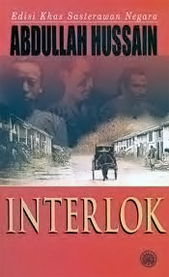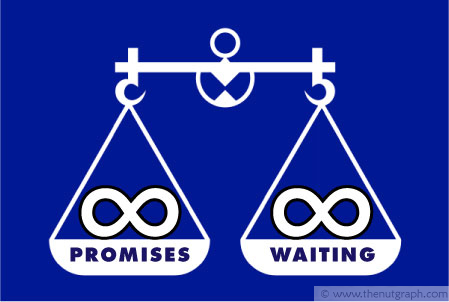
WHAT comes to mind when Malaysia‘s political leaders declare that Malaysia’s strength lies in its diversity? Do we believe the claim that is being made? And if yes, do we believe that they too, believe in these pronouncements they make and that they will do anything to defend Malaysia’s diversity?
There is ample evidence that Malaysia’s diversity is a treasure. There are also enough stories of Malaysians being successful because our diversity has taught us from young to be flexible, open, respectful and cosmopolitan.
However, it’s hard for me to believe that the political leaders who proudly flag Malaysia’s “strength in diversity” would do anything to defend it. There are just too many examples where what is said is often undermined by what is done. And in some instances, it is clear that the political leaders themselves, through the state, are responsible for denying and vilifying the diversity that exists in Malaysia.
Malays and Muslims only?
One of the most troubling developments in contemporary Malaysia is how our school textbooks are being written to obfuscate or even erase the role that non-Malays and non-Muslims played in our history.

In a letter to the press, Dr Ranjit Singh Malhi, a well-known and experienced writer of textbooks who used to advise the Education Ministry, revealed that the ministry’s history textbooks were biased because “they downplay the roles of the non-Malays in the development of our nation and its independence.” He cites the scant mention of Chinese and Indian migrants’ contribution to nation building in current textbooks compared to previous ones.
There is also more and “lopsided emphasis” on Islamic civilization. At the same time, the current textbook has “reduced more than 25% the amount of text related to Christianity, Hinduism and Buddhism” compared to the earlier textbook. There is also no mention that Parameswara, who founded Malacca, was a Hindu prince from Palembang.
The Education Ministry‘s explanation of these revisions was based on inaccurate information, according to Ranjit. Instead of explaining why the new textbooks had reduced content on other races and religions, the ministry chose to address only one aspect of criticisms against it. It declared that the panel of writers for its textbooks comprised a few non-Malay Malaysians including previously, Ranjit, and were not all from “one ethnic group”.

And then there’s the current dissatisfaction over Interlok, a secondary school literature book that stereotypes Indian Malaysians and purportedly instils the notion that non-Malay Malaysians are “pendatang”. These incidents make it easy to question if the Education Ministry, whose minister is the deputy prime minister and Umno deputy president, is really interested in defending our diversity.
After all, history textbooks are famously used to portray just one version of history so that a particular political agenda is served. Just look at how history textbooks in Japan justify its war-time and imperialistic past, and how our own history texts have no mention at all of the hartal of 1947 and the People’s Constitution.
Let us also remember what goes on during the Biro Tatanegara workshops, run by the Prime Minister’s Department, where Malay supremacy has been preached and Malaysians of other ancestries are made to feel like second-class citizens.
Is it any wonder then that there are citizens and academics who are concerned with the government’s announcement that the Education Ministry will “improve” the history syllabus “to improve understanding of the formation of Malaysia”? Especially when the announcement was made by deputy Umno president Tan Sri Muhyiddin Yassin in response to complaints raised by Umno delegates at its general assembly?
Cracking down on differences
One of my wishes for 2011 is for the government and state agencies to really uphold diversity by respecting differences in opinion, including on religion.
Throughout 2010, we saw the police either intercept or crack down on peaceful protests under the guise of the Police Act. Police thwarted more than 2,000 Orang Asli from delivering a memorandum to the Prime Minister’s Department regarding the government’s land policy that would affect the indigenous peoples’ land rights. Police also arrested peaceful demonstrators who wanted the Internal Security Act (ISA) repealed, who protested against water tariff hikes in Selangor, and who objected against the suspension of four Pakatan Rakyat (PR) Members of Parliament.

Police may technically be acting within the law by dispersing an “illegal assembly”. But what is clear is that the Police Act is outdated and stifles freedom of expression and assembly. Despite announcements that the Police Act would be amended, nothing has come of it and the police and Home Ministry’s attitude towards demonstrations against the government remain the same. Similarly, nothing has come of promises to amend the ISA which allows for indefinite state detention without trial.
What is apparent is this — opposing government policy and decisions and the political status quo is risky business. Having a different opinion from the state and making that opinion known is punishable by law or vilified. How then can we honestly talk about diversity being our strength when the government actually cracks down on differences in opinion?

For certain, the Barisan Nasional (BN) isn’t the only government inclined to exert power by penalising those who challenge that power with a different idea or position. The PR state government, for example in Selangor, has also demonstrated its lack of respect for different perspectives.
When the Selangor government attempted to ban the use of the 1Malaysia logo on billboards in the state, it looked like its exco Ronnie Liu was trying to ensure that only state-approved political logos or campaigns were allowed. At the same time, it was disappointing to read DAP adviser Lim Kit Siang‘s response to the ban. Instead of arguing for the ban to be lifted in the interest of freedom of expression, Lim wanted the ban reviewed so that Muhyiddin‘s statement that PR feared 1Malaysia could be disproved.
Let us also remember that it is the PR-led Selangor government that has persecuted the Ahmaddiya for their religious beliefs. The inability to respect diversity, hence, isn’t just a BN trait that we need to be aware of.
Beyond cuisines and customs
If, as citizens, we are content to just be the “Malaysia, Truly Asia” commercial, then it would be enough to just hear our political leaders praise our diversity when it is opportune to do so. After all, diverse cuisines and customs make for good tourism advertisements.

But if we believe that diversity must go beyond different cuisines and customs, and if we want a diversity that is the bedrock of our strength, then our leaders really need to embrace diversity of contributions, opinions, expressions and identities. Until both BN and PR leaders show us that they truly respect diversity, we should question the sincerity of their declarations. ![]()
Jacqueline Ann Surin doesn’t want Malaysia to be just a tourism ad. Nor does she want leaders who only talk about diversity and then shut down the very diversity that makes Malaysia vibrant and resilient.


Dr Syed Alwi says
Diversity or not – Islam is numero uno to the Malays. That is what separates the Malays from the others.
No Muslim leader can approve the Ahmadiyyah etc. Whether PAS or Umno or PKR – they all know that Islam is foremost among the Malays.
Political Islam has arrived in Malaysia… it’s time for you to reset your orientation.
JW Tan says
It would be sad indeed if I, or anyone else who is committed to the vision of a Malaysia without the burden of Ketuanan Melayu and creeping Islamisation, changed our views or objectives because a slightly different political force arrived on the horizon. It would mean that we weren’t committed in the first place.
My orientation is the same it has always been. My dream of what Malaysia should be is the same it has always been. All that changes is that the road to the dream is a little harder.
neptunian says
It is indeed a dark day when a person carrying a “doctorate” in front of their name celebrate a retreat into bigotic, myopic and oppresion based politics.
Doctorate are classified as PhD (doctor of philosophy) because of the ability to hold intellectual and philosophical debate. Termination of debate because “Islam” has arrived and “Islam” does not like questioning of edicts is really really sad.